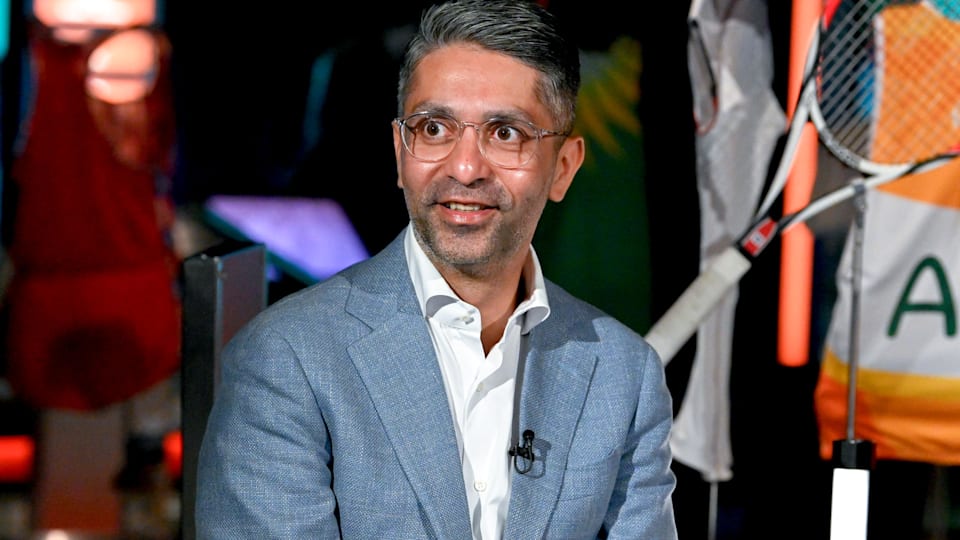IOC Mental Health Ambassador Abhinav Bindra: putting the human being ahead of the athlete
Ahead of World Mental Health Day, celebrated on 10 October, the Vice-Chair of the International Olympic Committee (IOC) Athletes’ Commission and Olympic champion in shooting, Abhinav Bindra, discusses the lessons learned throughout his Olympic journey and how he plans to help athletes in his new role as IOC Mental Health Ambassador.

Bindra’s mental health philosophy is centred on a human-first approach, and he has a message to athletes: “I would like to tell every athlete to ensure that their well-being as a human is at the heart of their performance. Tuning in to your own mental health and well-being is essential. And, of course, if any athlete is struggling, I would encourage them to seek help. There is absolutely no shame, and it is not a sign of weakness. It is a sign of great strength to seek help to get better.”
Bindra has often stated that his near misses were not the most challenging moments for him. In fact, that came after he became India’s first ever individual Olympic gold medallist when he won the 10m rifle at Beijing 2008.
This great achievement of mine created a huge void in my life. For 15 years, I would go to bed with a dream of winning a gold medal at the Olympics and wake up every morning trying to make it a reality. Finally, this beautiful gold medal was around my neck, and I was completely lost about what I wanted to do next. I lost motivation and was emotionally, physically and mentally drained.
Using a support network to get through tough times
“When I reflect back on those hard moments, I think surrounding yourself with positive individuals becomes critical. I was able to surround myself with friends, family and coaches who did not love me more or less if I had a medal or not. They just loved me for the person that I was.”
Through his tough times, he was inadvertently able to find clarity through one of the many techniques he has used to maintain and improve his mental health. “I went to a silent meditation retreat for 10 days to try to find my next calling in life,” he recalled. “Ironically, instead of meditating, all I did was think back to my sport and how I could get better. That gave me a very intense realisation that I loved what I did and that really inspired me to get back and start again.”
Athlete well-being initiatives at Paris 2024
Every Olympic Games, the IOC aims to further develop the safeguarding of athlete well-being, and Paris 2024 was no different. The IOC looked to address the external factors that can adversely affect mental health, none of which are more pervasive than social media.
We now live in a very distinct era where safeguarding athletes has to be done on different levels. The IOC’s new AI-powered tool to safeguard athletes from online abuse or harassment is a very welcome one. I'm glad to note that it was tremendously successful – all athletes competing were covered and it really helped filter out a lot of abuse.
The IOC’s offering at Paris 2024 also extended directly into the Olympic Village, with the Mind Zone a hugely popular addition. This specially designated area gave athletes a unique space in which to relax and decompress during competition, with many noting how much this helped them.
“I received overwhelmingly positive feedback from athletes during Paris, specifically for the Mind Zone,” enthused Bindra. “They were able to find a little peace and quiet in an environment which is normally a sensory overload.”
The focus on mental health was not restricted to just competition time either, with a clear message sent to athletes that they are supported at all times.
“They were very appreciative of all the various resources that have been made available, not just in Paris, but also prior, through the Athlete365 community. It has helped them to gain a better understanding of the topic, the measures they can take to prevent issues and how best to deal with them.”
IOC Mental Health Ambassadors
Abhinav Bindra joins Holly Bradshaw in the team of Olympians selected by the IOC who will foster mental health conversations among athletes in their respective regions, offering support and advice based on their own experience.
Additional Olympians joining the team of IOC Mental Health Ambassadors will be announced in the coming weeks. For more information on the full range of mental health support available to athletes, visit the Athlete365 #MentallyFit section.